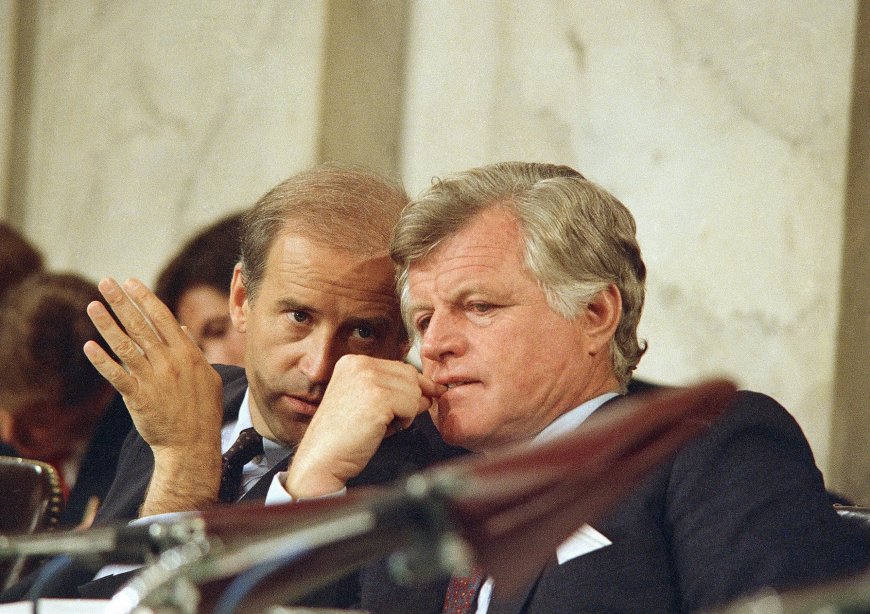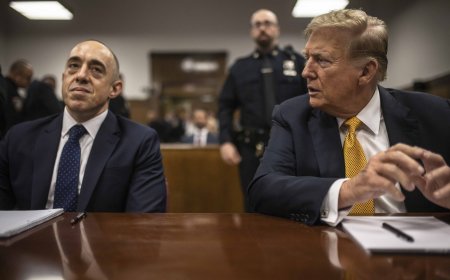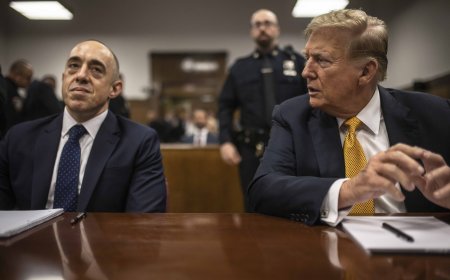What Liberals Can Learn From Ted Kennedy’s “Robert Bork’s America” Speech


Donald Trump’s America is a land in which women would be forced into back-alley abortions; doctors who offer reproductive health services to women could go to prison; Blacks would sit at segregated lunch counters; rogue police could break down citizens’ doors and bust into college dormitories in midnight raids; schoolchildren could not be taught evolution, Black history, or gay rights; writers, artists, and journalists would be censored at the whim of government; and the doors of the federal courts would be shut on the fingers of citizens for whom the judiciary is often the only protector of the individual rights.
With the addition of a few phrases and substituting the name “Donald Trump” for “Robert Bork,” the above paragraph is a transcript of the speech that Senator Ted Kennedy gave on the floor of Congress as an opening salvo against Ronald Reagan’s nomination of Robert Bork to the Supreme Court in 1987.
As the Massachusetts Democrat made clear in his thunderous denunciation of the federal appeals court judge, Bork, a vocal opponent of Roe v. Wade, argued that the First Amendment applied only to political speech, not artistic expression. As acting Solicitor General, Bork played a pivotal role in the notorious “Saturday Night Massacre” during the Watergate era when President Richard Nixon ordered Attorney General Elliot Richardson to fire the special prosecutor investigating the scandal, Archibald Cox. Richardson refused, and so did his deputy, William Ruckelshaus. Bork, then solicitor general, was the felonious president’s willing executioner and sent Cox packing. A federal court later ruled that the termination was illegal.
Bork also declared that Southern states had a right to levy poll taxes and refused to concede that the federal government had the power to enforce fair voting standards. Adding insult to injury, Bork claimed that the alleged misuse of the commerce clause demonstrated “a principle of unsurpassed ugliness.” Black Americans who lived under the terror of enforced segregation and exclusion, police brutality, lynching, and disenfranchisement might have argued that the ugliness of Jim Crow surpassed legalistic debates regarding mild interference with property rights.
Kennedy, with good reason, saw Bork as a threat to the Constitution as well as an opponent of racial and gender equality. The Leadership Conference on Civil Rights, representing hundreds of civil rights organizations, joined Kennedy in opposing Bork’s nomination.
Many observers, even those sympathetic to Kennedy’s position, accused the senator of hyperbole. They insisted that Bork did not favor racial segregation but maintained that the use of the commerce clause in the 1964 Civil Rights Act was beyond the Constitution’s reach. He also, as many Republicans now claim, believed that the states should regulate abortion and that not only was there no Constitutional right to an abortion but also no Constitutional right to privacy—the cornerstone principle of constitutional cases relating to police searches and sales of contraceptives. The Washington Monthly has long taken issue with Bork’s influential 1978 work undermining decades of antitrust law, The Antitrust Paradox, which led to the widespread adoption of a legal standard that made it easier for corporate mergers to pass judicial muster.
Even if Kennedy’s depiction of Bork as Bull Connor in a judicial robe was, arguably, over the top, the consequences of the late scholar’s legal philosophy were indisputable. Had his vision prevailed in the 1960s, the Jim Crow regime of oppression and exclusion against Black Americans would have continued for who knows how long. In some ways, he was to the right of the late Justice Antonin Scalia, who, for instance, voted to strike down a statute against flag burning. Bork said he would have upheld the law.
On abortion, stories of women with failing pregnancies dying from lack of medical intervention since the revocation of Roe v. Wade in 2022 illustrate that “back to the states” might make for a palatable political slogan. In practice, it enables the horrors that Kennedy highlighted.
The United States is currently living through a horror show of even larger proportions. Trump has already marred the world’s oldest representative democracy with the actions of a dictator. He’s ignored court orders, with the acquiescence of Republican leadership, circumvented congressional power, and violated the human rights and due process of countless people under the dubious claim that his administration is merely deporting violent criminals. Trump’s immigration goon squad is shipping human beings to El Salvador, where they live under torturous conditions. Making matters worse, the White House has shown no interest in rectifying their error when they exiled innocent men to the Central American gulag. (We’ll see what the administration does now that the Supreme Court has upheld a lower court order to return anyone mistakenly hustled off to El Salvador’s prison.) Agents of Trump have also infiltrated college dormitories, grabbing students for the “crime” of participating in anti-Israel protests, and even placed tourists and guest workers, including a Canadian actress who has appeared in MTV music videos, in detention centers.
Thanks to Trump’s Supreme Court appointments, each of whom sunk Roe, the State of Texas attempted to prosecute and fine a New York doctor $100,000 for prescribing abortion pills to a Texas resident. A New York county clerk refused to file the motion against the doctor.
Even in the Trump era, it is unlikely that restaurants will place “White Only” signs in the window and defy the Civil Rights Act. But the administration recently revoked a Lyndon Johnson-era executive order prohibiting businesses that contract with the federal government from practicing racial segregation, and the zeal with which it’s pulled books by Maya Angelou from military service academy libraries and censored Harriet Tubman’s role in the underground railroad at National Park Service exhibits does not inspire confidence.
Melissa Murray, a constitutional law professor at New York University, told NPR, “These provisions that required federal contractors to adhere to and comply with federal civil rights laws and to maintain integrated rather than segregated workplaces were all part of the federal government’s efforts to facilitate the settlement that led to integration in the 1950s and 1960s. The fact that they are now excluding those provisions from the requirements for federal contractors, I think, speaks volumes.”
An unprecedented attack on civil rights law pairs well with the Trump White House’s totalitarian assault on history. In the first two months of his second term in office, Trump has presided over the erasure from federal websites information regarding Jackie Robinson, the Native American code talkers, and other figures and stories related to Black, Latino, Asian, and Indigenous history. The demolition of knowledge goes even further. He has declared war on higher education, unilaterally threatening to strip billions of dollars of grant money from universities if college administrators do not placate the narrow, reactionary anti-diversity, equity, inclusion, and anti-transgender agenda of the Republican Party.
Moving along to Kennedy’s catalog of Bork’s offenses against democracy and equality, the Trump administration is attempting to intimidate journalists into silence and complicity. Because they won’t cooperate with his absurd renaming of the Gulf of Mexico to the “Gulf of America,” the Trump White House has banned the Associated Press and other outlets from briefings, although it’s been ordered to grant them admission. President Trump has filed lawsuits against journalists for using colorful invective when describing him and has publicly floated the idea of stripping broadcast licenses from CNN and MSNBC.
Finally, in the advancement of their violent campaign against immigrants, the Trump administration has ended legal defense services for unaccompanied children appearing before immigration courts. Human rights and legal experts have warned that depriving children of legal representation places them at higher risk of trafficking and abuse.
The America that Ted Kennedy envisioned as “Robert Bork’s America” is Donald Trump’s America. Only this time, it isn’t an educated prediction. It is real, with offenses against civil rights compounding daily. The question is what Democrat will speak with the clarity and aggression of Kennedy, whose floor speech galvanized opposition to Bork. It is true that Democrats controlled the Senate at the time. Still, unlike current political culture, it was common for the Supreme Court nominees to receive 80 votes or more for confirmation. For example, Scalia, nominated by Reagan and the first Italian-American justice, was approved unanimously in 1982. Democrats tried hard to derail Justice William Rehnquist’s elevation to Chief Justice that same year but could only raise 32 votes to oppose him. Derailing a president’s pick for the Court, especially a president as popular as Reagan, was no mean feat. Kennedy did much to pull this off, and especially relevant to the current counterpunch against the Republican authoritarian assault, his speech motivated and emboldened Democratic senators to do what they already believed was right. Bork garnered 42 votes on the floor, picking up just two Democrats and losing six Republicans.
Senator Cory Booker injected Kennedyesque energy into his colleagues and constituents by showing admirable indignation and panache with his filibuster in protest of Trump’s lawless attack on healthcare services and Republican-proposed cuts to Medicaid. His pledge to speak as long as he is “physically capable” signaled necessary defiance against Trump’s autocratic ambitions and antisocial cruelties.
Undoubtedly, other Democrats object to Trump with similar urgency and conviction. Senator Chris Murphy and Senator Sheldon Whitehouse are relentless, and progressive members of Congress, Summer Lee and Jasmine Crockett, are passionate. Illinois Governor JB Pritzker has shown the courage and commitment to Democratic principles that should inspire voters.
The question remains: who will galvanize the electorate as Kennedy did when declaring war against Bork?
Some problems make the replication of the Kennedy moment much more challenging. Unlike in the 1980s, no mono-media culture can amplify a stirring and dramatic speech like Kennedy’s to national heights. The millions of outlets—many of them hopelessly partisan and hallucinogenic in favor of the far right—scramble the attention span of the American people, allowing for siloed habits of those who do consume news. News consumption is hardly a universal household American experience. Many Americans are tuned out of politics, with nearly half unable even to name the party that controls Congress and only the rarest citizen aware of the Congressional Record.
Finally, Kennedy was controversial, bringing a few of those controversies on himself, but he had stature. When he spoke, people listened, even those who did not like him. Friends and foes recognized him as a leader. His opening shot against Bork was effective. Most historians partially credit Kennedy’s efforts with the Senate rejection of the Bork nomination. (The jurist did himself in with his lengthy defense of his positions, which, to be fair, is far more welcome than the prevaricating, obfuscating testimonies of most of the Supreme Court nominees who followed, not wanting to suffer his fate or losing on the Senate floor.)
The power of Kennedy’s speech is often forgotten. Left and right pundits have coined the term “Borked” to designate a vicious personal attack. Kennedy did not attack Bork personally but focused on his legal philosophy and history. Furthermore, before Kennedy took the floor, he and his staff completed assiduous research, including securing the support of the Leadership Conference on Civil Rights. It wasn’t the equivalent of a podcast rant. It was dramatic and effective leadership that met the moment’s urgency.
It is hard to find Kennedy’s equivalent in today’s political culture.
The old inquiry is whether leaders make the times or the times make the leaders. As the Trump administration mocks every standard Americans have claimed to hold dear, someone must, like Booker, at least attempt to capture the times in Kennedy fashion, using strong, clear language that demands attention.
Democrats crave confrontation. They want to see their elected officials fight through our current political emergency. One Democratic tendency that must end is the self-flagellation over the supposed “toxicity” of the “Democratic brand.” Kamala Harris only lost the swing states by margins under two percent (under one percent in Wisconsin). It is worth noting Kennedy’s declaration of war against Bork’s nomination came after Reagan won in a genuine historic landslide, defeating Walter Mondale in every state but Minnesota. At no point did Kennedy appear on television to whine about the falling fortunes of the “Democratic brand.”
The millions of Americans who filled the streets of large cities and small towns across America for the anti-Trump “Hands Off” protests on April 5 are not demanding poll-tested, consultant-approved “messaging.” They seek courageous opposition to the dismantlement of civil society, social liberalism, and democratic institutions.
Robert Bork’s America sounded like a dark place. Donald Trump’s America is a dark place. Despite the challenges, someone must look into the camera and try to light the spark.
The post What Liberals Can Learn From Ted Kennedy’s “Robert Bork’s America” Speech appeared first on Washington Monthly.











































